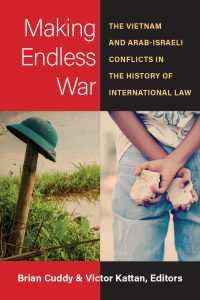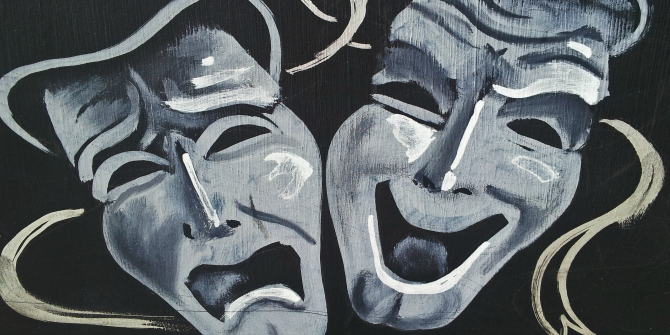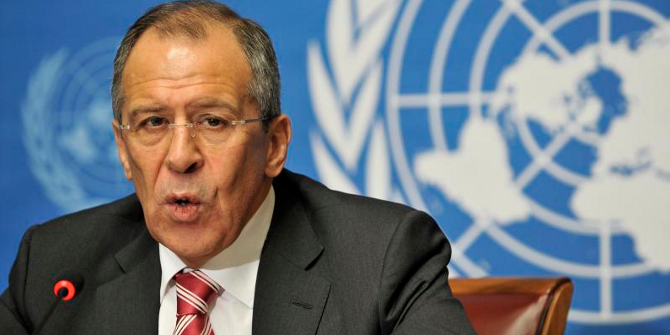In Making Endless War: The Vietnam and Arab-Israeli Conflicts in the History of International Law, Brian Cuddy and Victor Kattan bring together essays exploring attempts to develop legal rationales for the continued waging of war since 1945, despite the general ban on war decreed through the United Nations Charter. Linked through a nuanced comparative framework, the essays in this timely collection show how these different conflicts have shaped the international laws of war over the past eight decades, writes Eric Loefflad.
Making Endless War: The Vietnam and Arab-Israeli Conflicts in the History of International Law. Brian Cuddy and Victor Kattan. University of Michigan Press. 2023.
 For Jeff Halper, an American-Israeli anthropologist, co-founder of the Israeli Committee Against House Demolitions, and proponent of a single democratic state in historic Palestine, the decision to become an Israeli in the first place had a great deal to do with the Vietnam War. True to the counter-culture protests that arose in response to the War, the activist Halper, like so many young, idealistic American Jews of his era, viewed Israel as a more direct conduit to his heritage than a homogenising suburban upbringing could ever allow for. This search for meaning was coupled with a widespread difference in how the Vietnam War and Israel’s wars were broadly characterised in Halper’s contexts of influence. For many Americans who opposed intervention in Southeast Asia, Israeli violence differed in its “purity of arms.” According to this framing, in direct contrast to an American government waging wars half a world away, Israel zealously fought for its very survival right at its doorstep. It was witnessing the demolition of Palestinian homes to make way for Israeli settlers in the West Bank that caused Halper to renounce this narrative and rededicate his life.
For Jeff Halper, an American-Israeli anthropologist, co-founder of the Israeli Committee Against House Demolitions, and proponent of a single democratic state in historic Palestine, the decision to become an Israeli in the first place had a great deal to do with the Vietnam War. True to the counter-culture protests that arose in response to the War, the activist Halper, like so many young, idealistic American Jews of his era, viewed Israel as a more direct conduit to his heritage than a homogenising suburban upbringing could ever allow for. This search for meaning was coupled with a widespread difference in how the Vietnam War and Israel’s wars were broadly characterised in Halper’s contexts of influence. For many Americans who opposed intervention in Southeast Asia, Israeli violence differed in its “purity of arms.” According to this framing, in direct contrast to an American government waging wars half a world away, Israel zealously fought for its very survival right at its doorstep. It was witnessing the demolition of Palestinian homes to make way for Israeli settlers in the West Bank that caused Halper to renounce this narrative and rededicate his life.
the collection centres on the broad theme of how mostly American and Israeli lawyers, statesmen and military officers used issues that arose in the two conflicts to proclaim exceptions to the general ban on war as entrenched in 1945 through the United Nations Charter.
While Halper’s journey may be a unique one, it is nevertheless a testament to how intersections between post-Second World War conflict in Southeast Asia and the Middle East shaped the lives of so many different people in so many different ways. For anyone interested in how this multitude of individual experiences might be understood in relation to broader systemic forces, especially the variable medium for navigating “legitimate” violence deemed the “laws of war”, historian Brian Cuddy and international lawyer Victor Kattan’s Making Endless War is an invaluable resource. Comprised of ten robust chapters and an insightful forward by Richard Falk (a leading international legal critic of the Vietnam War and later the one-time United Nations Special Rapporteur for the Occupied Palestinian Territories), Making Endless War proceeds on a roughly chronological basis from 1945 to the present day, tracing developments and unearthing connections between the two (meta-)conflicts. With chapters confronting a variety of issues from multiple perspectives, the collection centres on the broad theme of how mostly American and Israeli lawyers, statesmen and military officers used issues that arose in the two conflicts to proclaim exceptions to the general ban on war as entrenched in 1945 through the United Nations Charter. While its detailing of legal doctrine is truly world-class, Making Endless War’s revelation of the individual personalities, diplomatic intrigue and political struggles behind ostensibly “apolitical” technicalities is equally outstanding.
Vietnam, emboldened by its resistance to the US, led efforts in the 1970s to include non-state national liberation movements within a regime of the laws of war that hitherto only granted rights to state actors.
One illustration of how this text accomplishes its multi-faceted, but nevertheless cohesive, focus across chapters concerns the debate on the revision of the laws of war via two Additional Protocols to the Geneva Conventions. In Chapter Five, Amanda Alexander explores the significance of how Vietnam, emboldened by its resistance to the US, led efforts in the 1970s to include non-state national liberation movements within a regime of the laws of war that hitherto only granted rights to state actors. Following this, in Chapter Six, Ihab Shalbak and Jessica Whyte centre the Janus-faced quality of what this revision meant for the Palestinians. While it provided their cause with a newfound degree of institutional legitimation, it also constrained Palestinian efforts to unite themselves as a revolutionary people whose struggle could not be divided along the lines presumed by the law. From here, co-editor Victor Kattan presents an account in Chapter Seven of how Israel moved from being the sole dissident resisting revision in the 70s (due to its application to the Palestinians) to being joined by the US in the 80s. This coincided with the ascent of the Reagan Administration in the 80s where an influential grouping of Neoconservatives and Vietnam veterans – invoking arguments pioneered by Israel – similarly prevented the US from ratifying the Geneva Convention’s Additional Protocols. Finally, in Chapter Eight, Craig Jones examines how, despite their nations’ disavowal, American and Israeli lawyers became adept at using the laws of war to enable, as opposed to constrain, violence through developing a regime of so-called “operational law” that integrated international and domestic legal standards in a manner “…designed specifically to furnish military commanders with the tools they required for ‘mission success’” (215).
With the ascent of the Reagan Administration in the 80s […] an influential grouping of Neoconservatives and Vietnam veterans – invoking arguments pioneered by Israel – similarly prevented the US from ratifying the Geneva Convention’s Additional Protocols
When reading Making Endless War in this present moment, it is naturally impossible to disconnect its insights from the most recent bloodshed in Israel-Palestine that erupted almost immediately following the collection’s release. Fortuitous in the most horrific way possible, Cuddy and Kattan provide an invaluable service in exposing the impossibly high stakes of the despair invoking “endlessness” that animates their collection’s poignant title. However, by connecting the greater Arab-Israeli conflict to the Vietnam War, the editors make a significant contribution in decentring the widespread viewpoint that the Palestinian-Israeli conflict is fundamentally unique – a presumption that unites pro-Israel and pro-Palestine advocates who agree on virtually nothing else. In this way, Making Endless War provides a powerful statement on how episodes of violence, however specific they might appear, cannot be understood independent of greater forces – including (and perhaps especially) the principles and institutions that present their mission as an effort to constrain armed conflict. As such, Cuddy and Kattan’s collection can be viewed as a major innovation in building a greater genealogy of global violence.
Making Endless War provides a powerful statement on how episodes of violence, however specific they might appear, cannot be understood independent of greater forces – including (and perhaps especially) the principles and institutions that present their mission as an effort to constrain armed conflict.
While their comparative framework might be viewed as limited in its representations, the editors are eminently aware of this, and this very awareness forms a cornerstone of their methodology. On this point, they deliberately confront the significance of how, especially within the centres of global power, “[t]he Vietnam War and the multiple Arab-Israeli conflicts became cultural moments that captured the public imagination in ways few other conflicts did, even those that were more lethal (262).” With this comparative captivation itself an important finding, there is no reason why the insights developed through Making Endless War cannot be extended to include the multitude of other forces, fixations, and personalities that can be located within the many ideologies of war that shape our lives. The Palestinian-Israeli conflict is a particularly vast and gut-wrenching repository of said ideologies. Sadly, there is no shortage of material for interested scholars to draw upon.
- This review first appeared at LSE Review of Books.
- Image Credit: Michiel Vaartjes on Shutterstock.
- Please read our comments policy before commenting.
- Note: This article gives the views of the reviewer, and not the position of USAPP – American Politics and Policy, nor of the London School of Economics.
- Shortened URL for this post: https://bit.ly/3S3fchj






